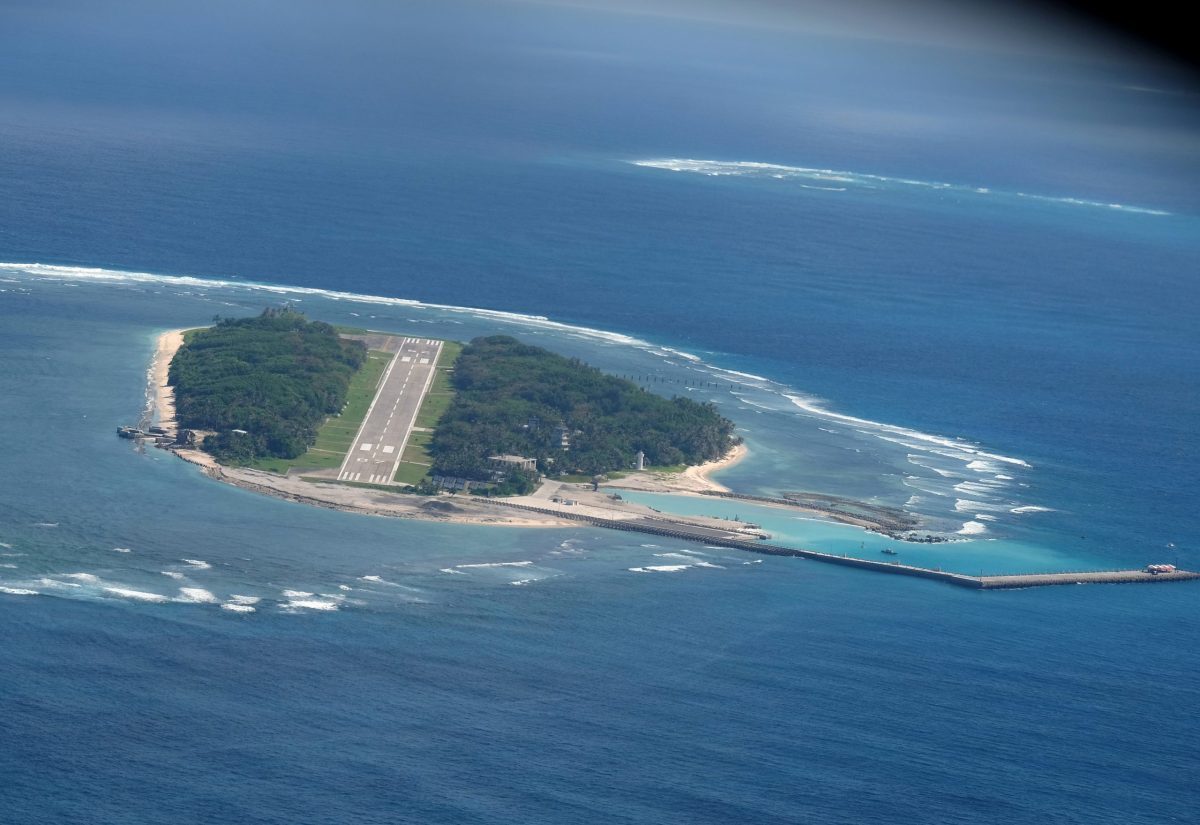[ad_1]
Itu Aba, also known as Taiping, is an island administered by Taiwan in the Spratly archipelago. It represents an opportunity for the development of a laboratory for science cooperation in a region torn by competing territorial claims and marine governance failures in the disruption of flora, fauna, fish and reefs.
Appropriately, the island’s Chinese name, Taiping, translates as “peaceful,†and as such affords a sanctuary for a common-interest approach to the region’s acrimonious disputes.
Both the People’s Republic’s and the Republic of China’s (Taiwan’s) claims to the island are based on historical maps from the late 1940s that belonged to the Nationalists when they ruled all of China.
It merits noting that it was only after World War II that the South China Sea captured the attention of China (and subsequently both the PRC and the ROC) given the previous perceptions by the Chinese of that body of water as merely an area of defense and not a matter of sovereignty or control, such that Itu Aba not claimed by China until 1946.Â
The cross-Strait ties between Taiwan and mainland China have avoided a head-on confrontation on the “one-China principle†through ambiguity and balanced irony, especially over Taiwan’s claims as grounds for asserting its sovereignty to the sole natural island in the area, since Taipei’s territorial and sovereignty claims form an indispensable component of the Chinese claims in the South China Sea writ large.Â
Of course, this complicates Taiwan’s position, as its key ally, the United States, disagrees with the PRC’s territorial designation (and by extension Taiwan’s), yet Taiwan is hesitant to relinquish its territorial claim because of domestic politics and the desire to maintain cross-Strait relations.Â
From Taiwan’s perspective, one key problem is the matter of how Itu Aba has been designated by a 2016 Law of the Sea Tribunal decision, altering its positioning and understanding of the area as a proper “island†under the Law of the Sea Convention (and thus impacting Taiwan’s designation of the area around Itu Aba as an exclusive economic zone, as well as its ability to patrol the sea).
Never mind that Taiwan completed a US$100 million port upgrade, constructed a new lighthouse, renovated an airstrip, opened a hospital and offered freshwater access.
In all likelihood, the legal arbitration experts never traveled to Itu Aba to observe its many seabirds, sparrow hawks, papaya plants, lotus leaf and assorted coconut trees (not to mention the fact that the tribunal decided on the island’s status when the state parties to the proceedings had not even raised the issue as a point of arbitration).
Adjusting for the reality that Taiwan actually does control and hold Itu Aba, however, opens the door for more effective and beneficial use of the island. That is, Taiwan has continuously asserted sovereignty over the area, thus cementing its control over the island, and since 2008 also has begun to propose the idea of turning the area into an internationally protected environmental research zone.Â
Significantly, Taiwan like many other states recognizes the changes that are happening in the oceans; they are getting warmer, and along with melting glaciers, sea levels are rising. Among both PRC and ROC marine scientists there’s a growing consensus that the South China Sea is a natural laboratory for deep-sea research and the importance of international collaboration.
As noted by Professor Keryea Soong, a respected oceanographer at National Sun Yat-sen University in Kaohsiung, Taiwan maintains an open policy for scientific investigations on islands in the region especially in light of massive bleaching in the lagoon and ocean acidification.
The reality is that Itu Aba might eventually become submerged, or at the very least, subject to extreme weather conditions that will likely get worse, making it costly and non-beneficial for Taiwan to maintain the island.Â
As such, a viable proposal that can assist Taiwan’s international recognition would be a unilateral move on its part to internationalize the island for the benefit of the world. In essence, what Taiwan can do is “donate†Itu Aba to the world, through the mechanism of the United Nations Environment Program (UNEP), specifically for exploration and examination of the ecological impacts of climate change (and other scientific purposes).Â
The South China Sea is undergoing extreme changes. Its coral reefs are subject to bleaching that seriously affects marine life, fish migration patterns have been altered, thereby causing massive disturbances to the fishing industry (a major economic market for Taiwan), and the warmer seas and rising sea levels portend extreme future changes for the entire region (let alone for the tiny island of Itu Aba).
Since Chinese President Xi Jinping has stated that “ecology … is part of the social contract between the Communist Party and the people,†it’s imperative that trust-building practices be set in motion now in the South China Sea. These confidence building exchanges among marine science experts can be achieved in an Itu Aba marine science peace park. Â
The operative principle for Taiping, or “Peace Island,†is conservation and environmental research. With the UN’s proclamation that this is the Decade of Ocean Science for Sustainable Development (2021-2030), the adoption of the island as a science peace park for the study of climate change and sustainability, and as a testing ground for future joint marine activities among the interested regional actors, could not be timelier as a common framework for all.
[ad_2]
Source link











